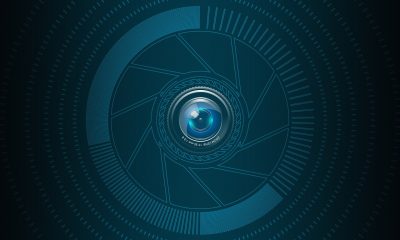Bitcoin developer Jimmy Song denounces hidden information; calls for transaction awareness

Recently, Bitcoin developer, educator and entrepreneur Jimmy Song released a Q&A video for Bitcoin Tech Talk #158, a video during which Song addressed several issues and concepts associated with Bitcoin.
The first one was Bitcoin Transaction Monitor, which provides data about any transaction entering the mempool in a visual manner, while also allowing them to be filtered by SegWit spending, Multisig spending, BIP-69 compliance and more. Also, fee rate estimates from various sources can be overlaid. Some possible future implementations include the archiving of historical data and providing a live visualization of incoming transactions.
Song commented that while making this information public would reveal private information about transactions, bad actors probably already use this information to weaken privacy or even completely depseudonymize transactions.
“Raising the awareness on what transactions can reveal is far more valuable than hiding public information. If I can build a Transaction Monitor that visualizes the data on your laptop, what can a motivated bad actor do with far more resources?”
Song also spoke about the transcript from a talk with Bitcoin Core developer, Cory Fields. He spoke about how Bitcoin might die and a few potentially catastrophic bugs. According to the transcript, Fields said,
“There was a Bitcoin Cash bug that I found and disclosed and it kicked off a discussion about responsible disclosure in these systems and how to do it generally. I was a little smug for a few months until we were effected by a similar bug in Bitcoin Core which potentially would allow for money printing out of thin air.”
Song then spoke about a talk by Blockstream’s Tim Ruffing, who addressed practical threshold Schnorr signatures. Though Shnorr signatures are easier to compute, are less CPU-intensive and were available when Bitcoin was created, it was under a patent at the time. The patents have expired since then and are something Blockstream is looking to bring in, along with Taproot in the future.
Song brought up an interesting article by Cane Island Alternate Advisors about how Bitcoin only saw certain prices once, such as $0.20 in November 2010 and $2.20 in April 2011. The article went into the details of what this could mean in terms of adoption.
When addressing the Lightning Network, Song spoke about payment points and deeper ideas such as discrete law contracts and multi-signatures. Another article in the newsletter proposed an increase in fee defaults to 5000+ for a healthier network and to move the noise floor up over time.
Song also introduced a blog post by Casa which put to rest concerns from users on Twitter revolving mainly around why their browsers showed a HTTP address when using their node from home and why their nodes have a default password which could potentially allow others to get access to it.
According to the post, using HTTPS for internal or home network connections involves certificate and browser challenges which make it impractical and potentially more dangerous. Further, it stated that Casa Nodes cannot be remotely accessed through SSH, and that a keyboard had to be physically plugged in to the node for someone to use the default password to gain access.






